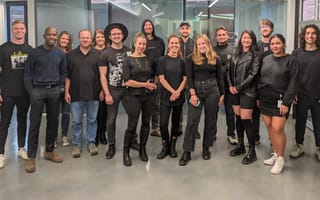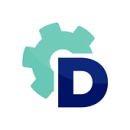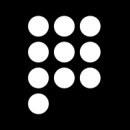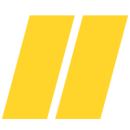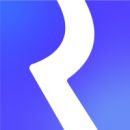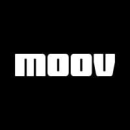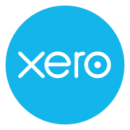For job seekers, sifting through pages of job listings can be an arduous task, and one that often elicits big-picture questions about personal values and goals. And when turnover rates in the technology industry can average 13.2 percent — for embedded software engineers, as high as 21.7 percent — it can be helpful to hear the success stories of those who have found a home in a particular company.
One common thread between all new hires we spoke with is an enthusiasm for their work, and a passion for solving new challenges in their roles. It’s no secret that finding the right company culture can unlock creativity and motivation. Even onboarding can become a breeze; as Kathleen Carroll, a software engineer at Sovrn, shared, “the learning part of any new job is challenging, but I’ve found Sovrn to be a massively supportive environment for that, making the learning piece more exciting than challenging.”
We spoke with Carroll and 10 other engineering new hires to learn more about what led them to apply for their roles, how they set themselves apart in their interviews, and what they’ve enjoyed most about their work.
What attracted you to apply for a role at Documoto in the first place?
I was looking to broaden my perspective in tech after six years in a large organization. My goal was to shift my time from enterprise visions and resource management back to development. Documoto checked all the boxes. It feels good to do the work I specialize in: software development. (The flexible PTO is a nice bonus.)
Which skill or experience do you think helped distinguish you during your job search?
The most important piece was my preparation. I reviewed the core technologies I worked on, clarified my key contributions, and took the time to learn about who was interviewing me. Understanding the technologies and expressing “code literacy” is a baseline expectation. Second, it was the ability to quickly describe the good work I had done in the past. It took practice. These three areas, plus some luck and good timing, helped distinguish me during my job search.
What do you enjoy most about developing Documoto’s technology, and what do you find most exciting or challenging?
Two areas: autonomy and exposure. With autonomy, I can take the lead and have the ability to work out the “whats” and the “hows,” and others can help if I run into a roadblock. With exposure, particularly in a startup, I get the benefit of visibility from data to the end-user experience. With a relatively smaller system, the impact is more apparent. This makes my work more satisfying, knowing its significance and weight.
What attracted you to apply for a role at Prove in the first place?
The mission. Every day, our Prove software keeps the average person’s financial transactions secure on mobile devices. And as our product listing expands, we continue keeping people’s personally identifiable information and financial accounts safe. Also, I worked in Scala for a couple of years, but when I saw Java implementing a lot of my favorite features from Scala in its newer releases, my interest in the language was piqued again.
Which skill or experience do you think helped distinguish you during your job search?
My previous experience was highly technical, involving streaming, database performance, functional programming and data pipelines. This helped, of course, but I think my communication skills were more important than my software grimoire. Having been a tech lead previously on a full-stack, tech-debt project, I could tell many stories of interacting with stakeholders possessing a myriad of technical and product understanding. In keeping a strong line of communication, we built features that met the needs of every team we supported. Plus, during this time, I had no choice but to get involved in parts of the stack that I myself was not an expert in but learned enough to lead developers to success.
What do you enjoy most about developing Prove’s technology, and what do you find most exciting or challenging?
Everything we build has an impact on our customers and the success of the business. One of the biggest challenges is the sheer number of high-touch stakeholders we have to interact with. At previous jobs I would worry about scale in terabytes, but at Prove I think in terms of feature-set complexity. Learning to build and support flexible, feature-rich API suites is a new challenge that I’ve really been enjoying.
What attracted you to apply for a role at Zoom in the first place?
During the Covid-19 pandemic, Zoom was helping people stay connected. Before Zoom, I was working with Glassdoor, and I always used to see Zoom rated by its employees as one of top companies to work for in criteria like culture, benefits, compensation and technologies. Zoom’s CEO has also been voted as the Top CEOs 2020 and 2021. I got the impression that the Zoom team really cares for its employees, and is living its principle of “Delivering happiness.”
Which skill or experience do you think helped distinguish you during your job search?
Working for customer-facing companies like Glassdoor have helped me build skills like search engine optimization (SEO), site-maps generations, and using meta description and title to help web pages perform better in certain search engines. Apart from that, skills like Java, Spring Boot, cloud technologies like AWS, securities like CSRF protection, XSS attacks, and SQL injections are some of the backend technologies I believe have helped me stand out.
What do you enjoy most about developing Zoom’s technology, and what do you find most exciting or challenging?
I believe everything I am doing is challenging and exciting at the same time. I was part of the hub team when I joined and the team has really helped me ramp-up quickly. Later, I moved to the Expo team, which is equally good and very collaborative. The Expo feature is currently in beta, and it feels great to solve the large-scale challenges as part of this team.
What attracted you to apply for a role at Maxwell in the first place?
I was originally attracted to Maxwell because of the problems they were tackling, as well as the culture. I had not applied for a mortgage myself, but I had also never heard anyone rave about the experience, which made me believe improving the process would be impactful on the industry. Making an impact, no matter the scale, was important in my search for a new role and company. Additionally, I was looking for a collaborative culture and felt aligned with the company values, which have held true and are lived every day here at Maxwell.
Which skill or experience do you think helped distinguish you during your job search?
My experience was a little bit different in that I was already working at Maxwell in a different role before moving onto the engineering team. I had completed a coding bootcamp, and from the moment I joined Maxwell I was open about my interest in being in a more technical role. I was able to connect with our director of engineering and spent about six months working on various small projects before transitioning onto the team. I think what helped me land the full-time role was a combination of my enthusiasm and willingness to learn, along with the rigor and ownership it took to not only do my job, but also manage additional engineering tasks, gaining experience along the way.
What do you enjoy most about developing Maxwell’s technology, and what do you find most exciting or challenging?
Every day is a new challenge to solve, but that’s also why I love my job! There are a lot of things in flight so I get to work with new code fairly frequently, which helps keep things interesting and also keeps me learning. I enjoy many parts of developing technology at Maxwell, but one of the highest on the list is the team I work with. Given the ever-changing nature of the job, it’s great to have teammates who are always willing to answer questions, jump on a call to pair, or discuss the best approach to implement new code. It’s a very team-oriented and collaborative environment, which is exactly what I was looking for.
What attracted you to apply for a role at Arturo in the first place?
Dozier: The people! I have worked with a number of Arturians in the past, and I knew that if they chose to come here, it would be a good place to be. So, not only do I get to work with people that I already know I love to work with, but I have had the chance to meet new people who are drawn to similar people and work cultures. The people here are smart, motivated, helpful and also a lot of fun.
Nield: What was so enticing about working for Arturo was the tight-knit company culture combined with the freedom and flexibility of working for a tech startup. I was excited by the opportunity to design and develop an end-to-end machine learning pipeline from the ground up that would be leveraged across the entire engineering team and have a measurable impact on the company’s success. I really liked that the role was cross-functional and that I would be able to work with and learn from individuals across the company with a wide range of backgrounds and disciplines. I felt this role would not only help me to grow and refine my skills as a developer, but it would challenge me, stretch my creativity and enable my professional growth.
Which skill or experience do you think helped distinguish you during your job search?
Dozier: I bring strong people skills and a collaborative mindset to software engineering. I love working across teams to create tools that meet each tech stack’s needs, and I’m always learning from people on my team and in other areas of the company. I don’t think any of my tech skills are particularly unique, but I do love creating tools with a system-wide mindset, and I like to have fun while working with the team.
Nield: I think it was my natural curiosity and a genuine passion for the work that I was applying for that ultimately distinguished me in my job search. Even though I am still very early in my career, what I lacked in experience, I made up for in my eagerness to learn and solve the complex engineering problems that Arturo is facing. I also consider myself to be a fast learner, and being adaptable and able to quickly pivot when needed is essential when working for a rapidly growing startup.
What do you enjoy most about developing your Arturo’s technology, and what do you find most exciting or challenging?
Dozier: It’s really fun that the work I do on a daily basis is integral to the core goals of Arturo. I’m working on tools to make our products faster, easier to use and more accurate. There is a strong team mindset to lend help and build a consensus around the tech vision. It’s a great place to learn and feel like your contributions matter.
Nield: I am excited by the sheer amount of work there is to be done, and that we as engineers get to design and shape what the next phase of our tech stack will look like. Because of the high-speed pace of our development, we are not always given clear and defined roadmaps of where we need to go and how we’re going to get there. Instead, we are often empowered to create our own roadmaps and connect with our users directly.
What attracted you to apply for a role at Sovrn in the first place?
I was initially attracted to Sovrn because it seemed aligned with what I was looking for in a job: a fast-paced work environment, a startup-vibe but not too early stage, an interesting industry with ad-tech, and a place with many developers and development teams. Being early-on in my career as a developer, I wanted to have great resources and a great environment to learn in, and I also wanted to be interested in the products I would be building, which I felt from Sovrn right away.
Which skill or experience do you think helped distinguish you during your job search?
One of Sovrn’s core values is learning, and that is a value I have always tried to embody. As a career switcher and coding bootcamp grad, I’m not averse to change. I thrive in developing new skills, even when it’s challenging. While many people enjoy learning and flex that in their skill set, I think being able to concretely demonstrate how I successfully learned to code and build software in multiple languages and frameworks helped me stand out.
What do you enjoy most about developing Sovrn’s technology, and what do you find most exciting or challenging?
Starting at Sovrn for me meant learning an entirely new tech stack and focusing more on data engineering, compared to my previous experience as a full stack developer with front-end responsibilities. So far, working with AWS and the cloud environment has been the most challenging since it’s unlike other development work I’ve done. Certainly, the learning part of any new job is challenging, but I’ve found Sovrn to be a massively supportive environment for that, making the learning piece more exciting than challenging. I really enjoy the variety of applications and tasks I work on day-to-day, and I love the balance of larger projects that span multiple sprints with smaller tasks that I can crush. Variety of work is super important to me because it helps me stay focused and engaged, and I’m very happy to have found that at Sovrn.
What attracted you to apply for a role at Reserve Trust in the first place?
By combining our Federal Reserve master account with modern APIs built on a robust backend, we’re aiming to bring unprecedented power and financial access to our customers. As an engineer, working on this kind of technology is both exciting and extremely rewarding. But at the end of the day, lots of companies have interesting problems to work on. What makes our story even more compelling are the company values of trust, drive, curiosity and collaboration. These help establish a strong foundation to build our company culture on, which makes working on these fun and challenging problems all the more rewarding and worthwhile.
Which skill or experience do you think helped distinguish you during your job search?
One of the things that set me apart from other candidates is my extensive startup experience. Early-stage startup experience is invaluable and uniquely prepares engineers to solve new and complex problems in ways they don’t often learn at large companies. At early-stage startups, every problem is new and unique, and no one is an expert. This provides unique opportunities for engineers to learn and grow as they step up and solve these problems. It’s not uncommon for engineers at startups to observe that they learn more in weeks than they had in years at larger companies. Additionally, my experience and passion in scale-out distributed systems brings a certain set of skills that will definitely help us in the problems we’re setting out to solve.
What do you enjoy most about developing Reserve Trust’s technology, and what do you find most exciting or challenging?
The most enjoyable and challenging aspect of working on disruptive technology is the sheer amount of innovation required. Solving problems that haven’t been solved before in new and unique ways is rewarding and engaging. Our company values are the cornerstones of our engineering culture, and they help us to look at problems in new ways and work together as a team to find solutions. It’s really exciting to see how rewarding this is, not just individually or collectively but also for our customers and their customers.
What attracted you to apply for a role at your current employer in the first place?
Moov came highly recommended by an investor at a venture capital firm. When I spoke to Moov’s team and learned more about the product they were building, I could immediately see its potential to drive innovation and wondered why someone hadn’t already built it. In doing more research, I dug into their open source offerings. While the quality of the code in their libraries was impressive, what really set them apart was the sense of community in their public Slack channels. In an industry where technical information is kept secret, Moov’s community openly shares knowledge. I learned that Moov started with open source. They built a community before even thinking about monetizing their product. They actually want to simplify the payment process and make lives easier for developers.
In addition, I was impressed with their engineering team and company culture. Moov is assembling a team of excellent engineers and trusting them to do their work. There’s no micromanagement. Anyone with an idea can make something happen. Team members are trusted to come up with good solutions and the team celebrates you for your contributions. And that’s true across the entire organization.
Which skill or experience do you think helped distinguish you during your job search?
I have a lot of experience in the financial space and have worked with banking primitives and payment systems in detail. While I’m sure that helped, I really felt Moov was more interested in who I was than in what I’ve done. I feel it’s always best to be honest in interviews rather than trying to be the person you think they want you to be. I took that approach at Moov. During the interview, I shared my hesitation in moving from B2C to B2B. I’d spent years working on products that impacted people’s lives and made a real difference and didn’t think I’d find that in B2B. The Moov team was honest with me as well; they didn’t misrepresent the company or the role. We shared the same pragmatic approach to development and enjoyed solving problems. When I heard about their vision of making developers’ lives better, I knew we were aligned in our goals to help people. Transparency and openness is something Moov and I both value. It’s even part of their core values. In my particular role, having helped design and build an accounting ledger helped set me apart, but also aligning with their mission was important.
What do you enjoy most about developing your company's technology, and what do you find most exciting or challenging?
Moov is doing something that’s never been done before. We plan to be the only payments processor connected directly to all the payment networks. What that means is we get to decide what that abstraction looks like. Before Moov, companies would have to use a third-party payments engine or API wrapped around existing technology. It’s a translation of something already translated. Like the telephone game, it loses precision, and adds latency and failure points. Because we’re engineers solving problems for other engineers, we work very hard to ensure our implementations are well thought out and make sense. I’m excited to be part of a team of experts working to make it easier to embed payments. The work is fun, challenging, and exciting. Doing it as part of a team where each person is valued and empowered is incredibly rewarding.
What attracted you to apply for a role at Xero in the first place?
With so many small businesses struggling during the pandemic, I found Xero’s commitment to small businesses very compelling. When I dug into the company a bit more, I found the “Xero Releases” section of their website, where it became even more apparent that Xero was very active in solving its customers’ problems.
Which skill or experience do you think helped distinguish you during your job search?
I think my experience building high-performance teams along with a decade of experience with Xero’s technology stack helped me stand out.
What do you enjoy most about developing Xero’s technology, and what do you find most exciting or challenging?
My favorite part of working at Xero is the ownership of the solutions we develop. Seeing a solution grow from the very beginning to the point that customers are using what you built has to be one of the most exciting parts of working in software!
